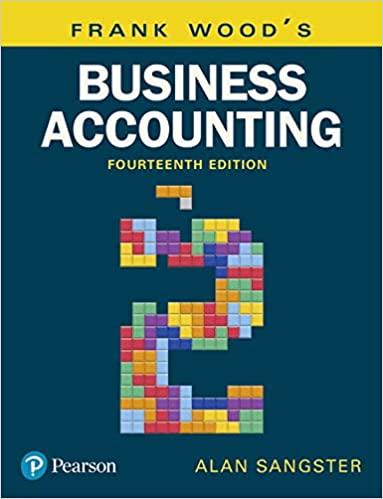Answered step by step
Verified Expert Solution
Question
1 Approved Answer
QUESTION Accounting for public entities, including government agencies and arganizations operating in the public sector, involves unicue princlples and considerations that differ from those in

QUESTION Accounting for public entities, including government agencies and arganizations operating in the public sector, involves unicue princlples and considerations that differ from those in the private sector. In this cantext, address the following aspects of public sector accounting: 1. Fund Accounting: Explain the concept of fund accounting and its significance in the public sector. Describe how fund accounting differs from trad tional corporate accounting and provide examples of ditferent types of funds commonly used by public entities. 2. Budgetary Accounting: Discuss the role of buogetary accounting in the pubilc sector. Explain how budgets are established, monitored, and executed in government agencles. Highlight the importance of allgning budgets with strategic objectives. 3. Revenue Recognition: Describe the challenges and complexities associated with revenue recognition for public entities. Explain the various sources of revenue, including taxes, grant5, and fees, and discuss the criteria that must be met for reverue recognition in government accounting. 4. Expenditure Control: Discuss the methods and controls used by public entities to manage and contrcl expenditures. Explore how public sector organizations ensure that expenses are in line with budgetary constraints and legislative mandates. 5. Financlal Reporting: Explain the requirements and formats for financlal reporting in the public sector. Discuss the primary financial statements used, such as the Statement of Net Position and the Statement of Activities, and their role in providing transparency and accountability. 6. Accounting for Speclal Funds: Detall the accounting procecures for special funds, such as trust funcs and capital projects funds, highilghting thelr unique characteristics and reporting requirements. 7. Accountability and Transparency: Discuss the fundamental principles of accountability and transparency in public sector accounting. Explain how public entities ensure that financial information is accessible to the public and subject to scrutiny. 8. Audit and Compliance Describe the role of audits and compliance in public sector accounting, Explain how external auditors eval uate the financial statements of public entities to ensure compliance with applicable laws and regulations. 9. Emerging Trends: Explore emerging trends and challenges in public sector accounting, such as the adoption of international accounting standards, sustainablity reporting, and the use of technology to enharce finencial management. 10. Ethical Considerations: Discuss the ethical consiceratlons that are particularly relevant in public sector acnounting, including the responsible use of public funds and the importance of upholcing the oublic interest
Step by Step Solution
There are 3 Steps involved in it
Step: 1

Get Instant Access to Expert-Tailored Solutions
See step-by-step solutions with expert insights and AI powered tools for academic success
Step: 2

Step: 3

Ace Your Homework with AI
Get the answers you need in no time with our AI-driven, step-by-step assistance
Get Started


